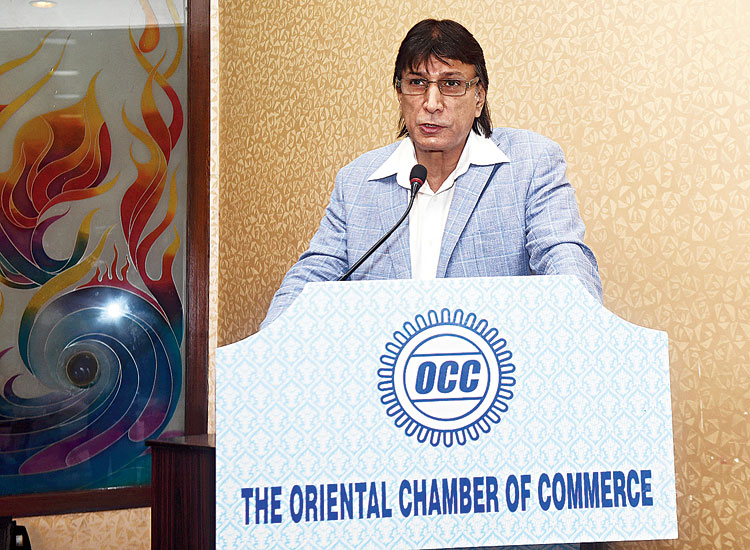Peace and prosperity are time-honoured partners and that alliance is under threat in India, a section of business leaders said in Calcutta on Wednesday.
The business leaders had assembled for the annual general meeting of the Oriental Chamber of Commerce, where they stressed that businesses would not grow in the country unless there was stability and calm.
“Our country is going through a period of turmoil and protests. We hold this meeting in a time of worsening political atmosphere, in a time of lack of trust,” Noomi Mehta, a senior member of the Oriental Chamber of Commerce, started the chamber’s 87th annual general meeting with these words.
Mehta then threw a rhetorical question at the audience. Why would these issues impact a chamber of commerce? “It is because without calm, without safety and security, commerce, trade or industry cannot function,” Mehta, who owns an outdoor advertising company, answered himself.
Businesses in Calcutta find themselves in “relative oasis of peace”, he added.
A sense of fear was palpable among many in the audience when they spoke to Metro or among themselves. Most did not want to be named lest they were targeted later.
“Peace and prosperity are time-honoured partners. If you disturb peace, do not expect prosperity,” said a past president of the chamber. He cited the Singur episode in Bengal to underscore that businesses wanted a climate of stability and calm. “Imagine the volume of loss that businesses faced because the factory could not start here.”
Because of the “uncertainty” and “lack of calm” in many parts of the country, no new large-scale investments are happening anywhere in India, several business leaders said in their own way.
“Unlike some of us, large companies have deeper pockets and can afford more risk but even they have shied away from making investments,” an elderly man said.
None of the leaders mentioned any political party or particular state or city, but admitted that the situation had to change for investments to come.
The Oriental Chamber of Commerce was set up in 1932 and its members are owners of small and medium enterprises.
The leaders also complained about how GST was freezing their working capital. Without working capital, they are unable to go for deals often, they said.
“Some of the rules do not give us a level playing field. If business people and traders fail to file GST returns on time, we are charged 18 per cent penalty. But if the government fails to give the refund on time, they will give us only 6 per cent interest,” said Ali Abbas Shirazi, a senior member of the chamber.
Shirazi and other businessmen said imposition of 5 per cent GST and the time it took to get the refund would leave their money frozen. That money could have been used to expand their businesses. The traders said the 5 per cent refund would come after many months or even a year and all this while the money paid as GST was not accessible.










